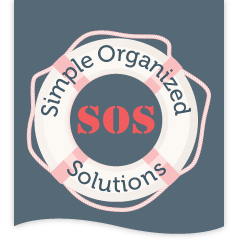 We all have had times where we needed to have a difficult conversation with someone. This can happen at all stages and ages of life, personally and professionally. Just the anticipation of having a difficult conversation can cause stress, probably due to the unknowns.
We all have had times where we needed to have a difficult conversation with someone. This can happen at all stages and ages of life, personally and professionally. Just the anticipation of having a difficult conversation can cause stress, probably due to the unknowns.
These unknowns can include, but are not limited to the following:
- How the other person will react
- If we will come off as confrontational
- If they will take us seriously
- If we can get our message across without the other person getting defensive
- Coming to terms we can both accept
- Both of us coming to a resolution, or a compromise
The idea is to approach the subject with diplomacy in order to a create a calm and constructive discussion. Preparing in advance is key to success in any endeavor, and especially for having a difficult conversation with someone.
A good way to mentally prepare for a difficult conversation is to organize your thoughts. Getting your thoughts out of your head, as some call a brain dump, is a good first step. Remembering some key communication points is also important. Here is a list of communication points to keep in mind as you prepare for this difficult conversation:
- Effective communication – Speak clearly and directly. Explain the situation to start the conversation, and what you want out of the situation.
- Keep emotions out of the conversation – This may not be easy depending on the topic, but it will keep the direction professional, and hopefully avoid, or diffuse a potentially stressful situation.
- Listen. Listen. Listen. – I cannot stress this enough. Really listen and hear what the other person is saying until they are done. Do. Not. Interrupt. Acknowledgement of what you are hearing goes a long way so the other person feels that they are being heard.
- Put yourself in the other person’s shoes – You know how you feel about this situation, so try to look at it from the other person’s perspective. This may give you insight on how to approach a difficult conversation.
- Agree to disagree – This may be the only way to settle a conflict when you can’t come to terms. That’s ok, not every difficult conversation can be resolved happily. You aren’t going to agree with everyone’s perspective on everything. By doing this, it may or may not resolve the situation, but it should provide understanding from both parties.


Leave A Comment